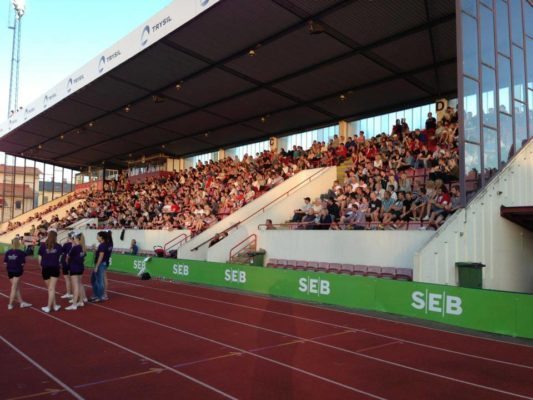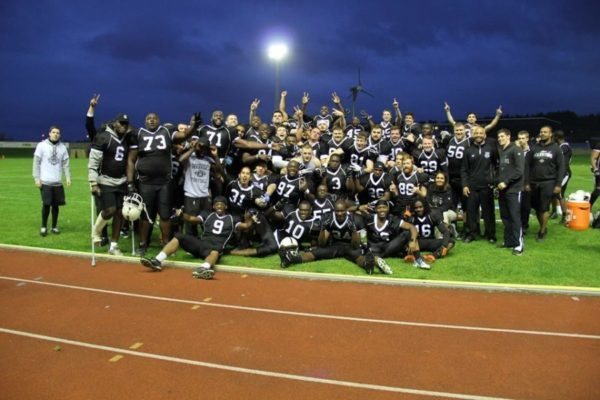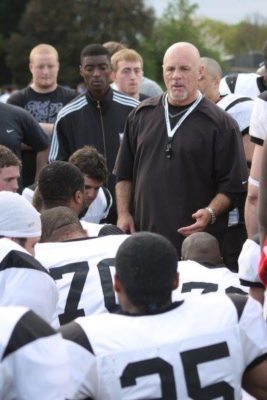How to Build a Model Franchise
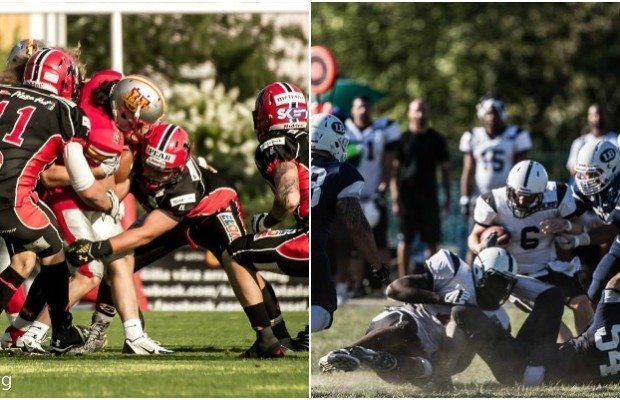
How do they do it? We will try to explain here
[su_dropcap]I[/su_dropcap]n the past few weeks, the Carlstad Crusaders and London Warriors have won their respective league championships – again. Each organization has earned an impeccable reputation, not only in their own countries, but in others as well. How do they do it? We will try to explain here.
Champions lead the way in Sweden & UK
Sweden’s top American football team, the Carlstad Crusaders, with a history stretching back to 1993, recently capped an outstanding season, capturing their sixth straight Swedish championship in dominating fashion while also becoming IFAF Europe Champions League champions, also in dominating fashion. The past 10 years have seen the club undergo a development that could serve as a model on how to become a successful club franchise in sports. They should put together their own presentations and translate them into multiple languages.
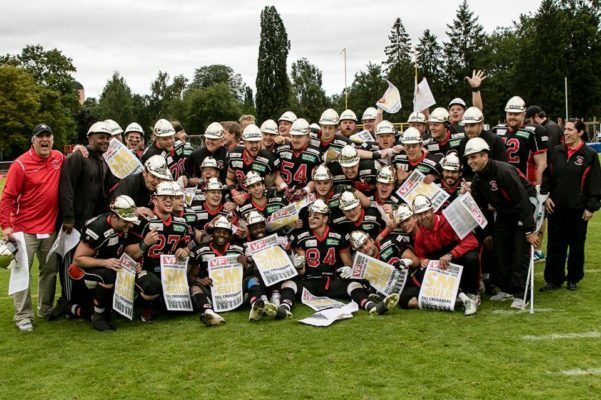
In both cases, the making of a legacy could very well be the title. It would be a blueprint for other clubs and organizations. Both teams have done it very well, but they did not exactly invent the model. Carlstad president Rikard Borg is the first to tell you this.
“Look at all the other successful sports franchises anywhere in the world,” he said. “They all do the same things right.”
Allen echoes this sentiment.
The point is that although there is no paint-by-number formula for building a successful, long-lasting franchise, it certainly can help guide other clubs starting out to slowly find their feet and get on solid ground.
Crusaders’ Formula For Success
Let’s begin by taking a closer look at the Crusaders.
When Rikard Borg’s playing days pretty much ended in 2004 due to knee problems, he made it clear he wanted to help the club, not simply by coaching, which he was doing. He wanted to help support the core organization any way he could. He had been working as an assistant coach until 2006 when, after a brief but unsuccessful return to the field, he hung his cleats up for good. He wanted to do more than just coach though, so he volunteered to join the board and was voted as president of the Crusaders. This was a testament to the respect he had with the club both on an off the field.
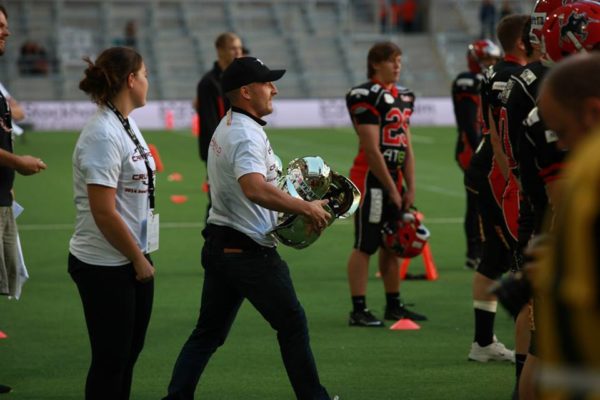
One of the more pleasant duties for the tireless Rikard Borg – carrying out the championship helmets.
“I started to do the recruiting that season, both in terms of coaches and players,” Borg said. “I learned a great deal from my predecessor, Robert Sundberg, and watched and learned from other clubs in Sweden.”
Obviously, he learned very well. Since then the club has amassed a record of 107-19, appeared in nine Swedish championships and won the last six. After a superb season in which they dropped just one game, out of the 16 the played and won their sixth straight title.
“This has been a four to five man organization with the same group meeting every week, almost year round,” Borg explained. “Our agenda is to create sustained development, not only at the senior level, but also down through the lower age groups too.”
What Borg brought to the club was his dedication and football savvy. For example, much of their recruiting targets players from other smaller towns in Sweden. With so many players in the Stockholm (translate Big City) region, they realized they could not compete with jobs, entertainment and everything else.
“We focused on players who were brought up in a smaller, more close-knit communities, like we have here,” continued Borg. “We knew they would feel more comfortable here and that the frills of the big city were not as important.”
That is a lesson in solid management. Know your people and cater to their needs and wishes. “We began attracting younger and younger players and our first task was to find coaches to handle the growing interest among kids and teenagers,” said Kalle Flogman, another diehard Carlstad organizer, who alongside Rikard, has helped take football to another level.
Like Borg, he played for the Crusaders and when he decided that his playing days were over, offered to help. That was in 2009 and he has been a part of the inner circle ever since.
These two have put their stamp on the growth of football in Carlstad and surrounding area but also on its development throughout the country.
The Warrior Way
Tony Allen is a veteran of NFL Europe having played and coached in that league. He was also head of International Player Development for NFL Europe for many years. He played for and then coached the London Olympians to the British title in the early 90s. He knows what it takes to build a successful club.
Together with another former player and coach, Gerry Anderson, Allen formed the Warriors to teach the game American football to kids in London. The pair always believed in giving young people a sound platform using coaching and a solid organization to create success. To him, success is stimulating interest in the game and nurturing players. The by-product will always be success on the field.
The club started to grow and Allen and Anderson began to add more and more coaches to handle the growing interest in the game (There are now 28 coaches and counting). They focused on the under 21 age group while attracting more and more kids to play flag football. In the UK, tackle football does not start until the age of 14.
Their hard work and tireless efforts began to pay off as the under 21 team, which was growing as the NFL regular season games sparked a great deal of interest, won four British titles in a row before the senior team was added.
“We formed a senior team to accommodate the graduating juniors who now needed a team to play for,” continued Allen. “We have been working in the schools as well.”
That core group of juniors graduated to the senior level and has appeared in the British final, either junior or senior eight (out of nine) times since then, winning the past two senior titles.
“To us, the key is sustained development,” said Allen. “That is the reason for constantly teaching new coaches how to coach.”
The Recipe
It seems then that for teams to develop consistent success as these two have done, development is multi-pronged. The Warriors began by coaching a core group of kids and following them up through the age groups. By the time they were in Junior they had experienced good solid coaching on fundamentals. Many of them turn to coaching once their playing days are done. The Crusaders followed a similar recipe. And both emphasize two points: sustained development and coaching.
In the meantime, the business side of the club must attend to matters such as equipment, fields, game-day staff and so on. So by adding Coaching + Players + Board + Fans + Interest + Organization and add a huge dose of level-headed selflessness – common sense – you have a recipe for building a model American football franchise.
This is not to say that other clubs have not followed a similar path to success. The Stockholm Mean Machines in previous years in Sweden and the London Bltiz in the UK, currently the Warriors’ chief rivals, have won multiple championships as well.
It is simply that the Crusaders and Warriors have done this more recently.
Easy, right? Sure, just ask Rikard Borg and Tony Allen. They would be the last two people to agree this was easy.
